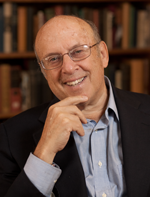
Jeffrey Carduner, Aesthetic Realism consultant, writes:
“Value, Criticism, & Ourselves” is richly encouraging of the best thing in a person: our desire to value truly what is in the world! This issue of The Right Of includes a magnificent discussion by Eli Siegel of a thrilling passage from Walt Whitman’s Preface to Leaves of Grass. It also describes that in everyone which does not want to find value in things and in people—and this is knowledge we need in order to see what we really want to go after. You’ll find great, life-enhancing meaning in “Value, Criticism, & Ourselves,” the latest issue of The Right of Aesthetic Realism to Be Known.
The commentary by Ellen Reiss begins:
Dear Unknown Friends:
We publish here the conclusion of the 1970 lecture we have been serializing: Criticism Is the Art of Responding to Value, by Eli Siegel. This magnificent talk is about the two big territories of criticism: life and art.
Everyone’s life is a life of being a critic, however imperfectly. That is because, whether we’re aware of it or not, we are always dealing with the questions What value is there in the world and things? and Do I want to see their value? Our need to be a true critic—to value rightly the multitudinous world—is the same as what Aesthetic Realism shows to be a person’s deepest desire: to like the world on an honest basis. The unarticulated ambition of a baby born today is to like the wide world she came into; and that ambition includes being against what deserves her againstness and for what deserves her esteem. However unaware of it she is, and however much she may betray it in coming years, her desire to be a good critic is as real as her heartbeat and her reaching fingers.
The other tremendous territory of criticism is art. A literary critic, an art or music critic, has the job of responding truly to the value of a poem, painting, novel, concerto, and showing what that value is.
What Interferes
Aesthetic Realism is the philosophy that has made clear the big interference with true criticism, in the fields of both life and art. That interference is contempt, the most hurtful thing in the human self: the feeling we will get an “addition to self through the lessening of something else….” Read more